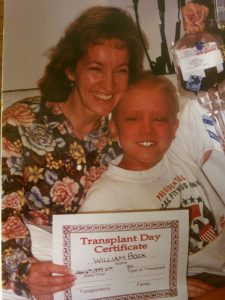when sorry isn’t enough
Chances are, the more time goes on in your adulthood, the more you sense the consequences— both long- and short-term—of decisions made decades ago. If you had truly known where moving from that city to this one would take you, you might have made a different choice. If anyone had been able to adequately communicate what parenthood was like, why it was worth it, you would have done it sooner, or had more kids given the chance. You’d have saved a whole lot more if you knew the current cost of living, or that the air conditioning was going to die the same year your husband needed knee surgery. We all live with the ripple effects from choices made half-blind, squinting as we tried to navigate what could be ahead with our limited sight, rubbing the smudgy lenses of our stories.
I have been trying to teach my teenage daughter about how to live with what she chooses: to say, to do, to spend, to not do. She, like me, walks around with a tender heart, a constant drumbeat of awareness of others, and an assuredly genetic or learned need to defend herself, and use her voice to push back. She knows when she has hurt someone, and often wants to get out of the disconnection that the hurt causes with a quick apology and a pleasant-yet-forced moving on.
What I want her to know is that words are often not enough in terms of repair. The thing is broken: trust, safety, orientation. It takes a different kind of work to rebuild, requiring work that is much harder than just an apology. “Trust is gained in drops and lost in buckets” is the sobering motto of anyone living in relationship after a betrayal, indeed for anyone living, having betrayed themselves. It is a precious and fragile thing to hand someone your time, trust, heart. When you hand that over to me and I drop it, there is a shattering on some level.

I think, too, that repair work is nearly impossible, and also not enough, without someone being willing to die to something. Forgiveness, and certainly repair, cannot move forward without a death. An absorbing of the loss, a taking of the hit, an acknowledgment that choices, words, woundings all require payment. Without the hope of a Savior standing between me and the next sinner I’m about to hurt, standing often between me and my own wounded self, repair might not be meaningless, but it is thin and pressured striving. Jesus’ present help in absorbing the sting of sin against us, and our sin against others, is what brings tolerance and capacity for repair work. He re-imagines beauty from ashes, re-engineers life from death, rebuilds chaos into redemption.
What is our part to play, then, after a wounding that “I’m sorry” cannot really cover? Assurance of our unchallenged belovedness is what holds us up sturdy as we dare to ask “How did what I did to you impact you?” This assurance holds us up as we try to wait with patience and curiosity to hear the cost on the person we’ve harmed. Curiosity informs what our living amends can look like. So often, repair looks like living in a way that brings safety back to the wounded. Patience is vital; it is what is required to slow down and attune to what the other needs. A willingness to wait on a restored sense of trust, to bear up with their distance, or timidity, or need to sit in what happened, also speaks volumes.
Oh, if we only were not so threatened in our self-concept of being good and earning worth. Of course we’re going to make blind choices, and of course we are going to willingly hurt, self-protect, self-defend. This posture helps us to normalize another person’s feelings after we have messed up, and it helps us to normalize the grief we feel living with our own choices. Of course they are hurting; we would too, if we were them. Of course the reckoning of what we didn’t know years before is painful now; our sight was limited and we wanted so much more for ourselves. If we could relax around our penchant to fumble, we’d see that we are leaning back into a loving embrace. We are the only ones scandalized; the Father certainly is not. What a miracle to be able to participate in rebuilding, to play a small part in God’s stunning reworking of damaging choices.
 Meredith joined The Barnabas Center staff in January 2009, upon completing her Masters in Counseling from Gordon-Conwell Theological Seminary and her Bachelors in Religion and Psychology from Furman University. She counsels, leads women’s groups and teaches a seminar called “Hope in the Darkness” for those walking with individuals suffering from depression or bipolar disorder.
Meredith joined The Barnabas Center staff in January 2009, upon completing her Masters in Counseling from Gordon-Conwell Theological Seminary and her Bachelors in Religion and Psychology from Furman University. She counsels, leads women’s groups and teaches a seminar called “Hope in the Darkness” for those walking with individuals suffering from depression or bipolar disorder.







